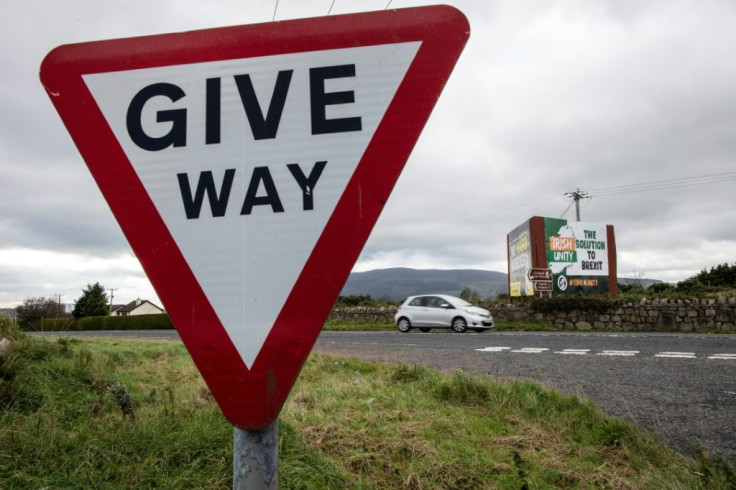Ireland Budgets 1.2 Bn Euros For 'No-deal' Brexit

Ireland on Tuesday unveiled a 2020 "no-deal" Brexit budget that includes a 1.2-billion-euro relief fund to cushion the blow of Britain potentially leaving the European Union without a negotiated agreement.
Finance minister Paschal Donohoe released the spending plan as talks between Brussels and London teetered on the verge of collapse ahead of an end-of-the-month deadline.
"This is a budget that has been developed in the shadow of Brexit", Donohoe told parliament. "The context for Brexit has now shifted to no-deal as our central assumption."
Donohoe said the relief fund makes 200 million euros available for port and airport infrastructure and staffing next year.
But he said "borrowed money" would also be used to intervene in a no-deal, with 650 million euros available to agriculture, enterprise and tourism sectors as well as "the most affected citizens and regions".
Some 220 million euros would be deployed immediately in the event Britain fails to secure an exit deal with the 27-nation trading bloc.
But, he said: "If we do not need it, we will not borrow it."
With Prime Minister Leo Varadkar's Fine Gael party engaged in a pact with main opposition party Fianna Fail, the budget is expected to pass.
Cost to growth
The intervention will come at a cost to growth, after a decade of recovery from a post-Celtic Tiger recession.
Ireland is projected to run a surplus of 0.2 per cent of gross domestic product this year.
Under no-deal projections, that would slip to a deficit of 0.6 per cent of GDP in 2020.
Ireland's finance ministry has also previously forecast 55,000 fewer citizens in work as a result of a no-deal.
Donohoe said support for Ireland's fishing fleet, as well as its already faltering beef sector would be the government's "first priority", pledging 14 million euros ($15 million) and 85 million euros ($93 million) to the industries respectively.
In September Ireland's central bank warned one in three farms will be at risk in a no-deal, which could see trade barriers erected and stiff tariffs imposed on meat.
"I hope to never access the billion euros of funding -- I hope to be able to tell Paschal Donohoe to take back the money because it's not needed, because we have an orderly and managed Brexit," foreign minister Simon Coveney told reporters.
Time is tight for the UK and EU to solve the Irish border issue now holding up Brexit, with the talks set to end by the time EU leaders meet for a crunch summit in Brussels on October 17.
Coveney, due to arrive in Brussels later Tuesday for talks with EU chief negotiator Michel Barnier, said he believed it was still possible to find a compromise.
But he added that Varadkar would not be "boxed in" by London's latest Brexit proposal -- Dublin believes the plan would not avoid a hard border going up with the British province of Northern Ireland.
Finding a way to keep the border open without keeping at least a part of the United Kingdom tied to EU trade rules has long been the main sticking point in the talks.
© Copyright AFP 2024. All rights reserved.





















